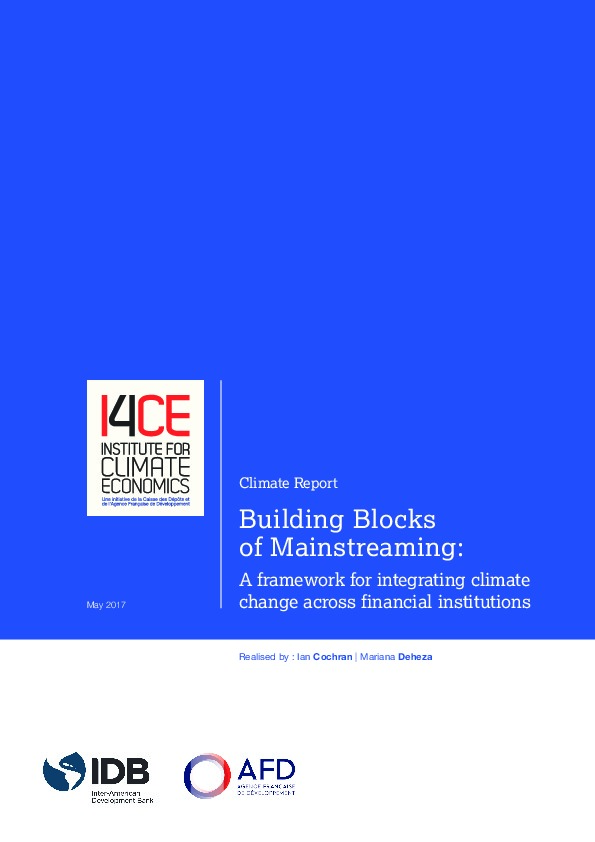Building Blocks of Mainstreaming of Climate Action in Financial Institutions
Following the landmark events of 2015, international development and climate agendas have become increasingly linked. The Sustainable Development Goals have identified climate action as a central piece of advancing long-term development objectives. For the first time, the Paris Accord has led to both public and private financial institutions being called by the international community to take climate change into consideration as the world focuses on achieving the ambitious goal of ‘zeronet’ emissions by the end of the century. This implies an integration or ‘mainstreaming’ of climate-related issues by development finance institutions (DFIs), as well as the broader financial community.
This report identifies the principal areas and issues to be addressed by both public and private financial institutions in the process of mainstreaming climate change and supporting the low-carbon, climate-resilient (LCCR) economy. It is based principally on a desk review and the experience of public development finance institutions and in depth case studies that I4CE has conducted. This report’s focus on DFIs as they have in some cases well over a decade of experience on addressing climate-related issues in their policies and analysis of individual projects. Much of this experience has a strong potential value to support private financial sector actors in mainstreaming climate change across their activities.
A short version of this report is available in Spanish here.
